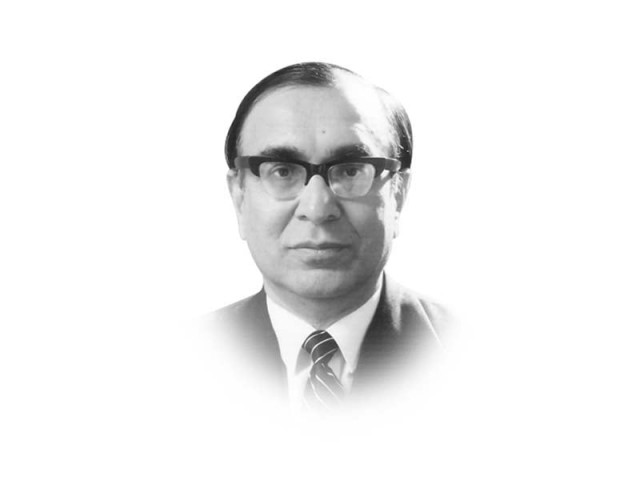Palestine’s moment of truth — II
The resumed journey to a Palestinian state with pre-1967 borders can be delayed but not denied.

Israel has perpetuated occupation of Arab lands for 45 years, to construct ever expanding Jewish settlements in it. In April 2004, President Bush wrote his infamous letter to Sharon, supporting Israeli retention of these “settlement blocs” and opposing the Palestinian right of return. Henceforth, any bilateral negotiations between the Palestinians and Israel were foredoomed to failure. Obama’s retreat from a position diametrically different from that of Bush, forced even Mahmud Abbas to build freezing of settlement construction into a precondition for talks and also renew the quest for statehood. His current defiance of the West is the last effort to prevent the final burial of a two-state solution by Israel through appropriations that shrink the Arab land by the week.
Abbas faces formidable obstacles: he cannot force the pace at the UN Security Council because he lacks the nine votes required by his request, even though its adoption would trigger an American veto. It is not clear when he would go to the General Assembly where a resolution granting non-member statehood will receive strong support. Armed with it, Mahmoud Abbas can forestall, for some time, another intifada that may ignite a regional conflagration. What has changed for him is that he cannot return to a soft posture on colonisation, including that of East Jerusalem. The stakes are so heavy high, that Abbas may eventually conclude that the momentum of colonisation can be broken only by taking the risks of a mass uprising.
In pure military terms, the balance of power is in Israel’s favour. But this advantage is being offset by far- reaching changes in the strategic landscape. The new Egyptian regime will reflect a new modus vivendi between the army and resurgent political groups ranging from nationalists to Muslim brotherhood. It will not provide space to Israel that Hosni Mubarak did for three decades. Turkey’s disenchantment with Israel goes beyond the murderous Israeli assault on the peace flotilla; it is also becoming a requisite of its new political and economic role. As Prince Turki al-Faisal warned in a forthright article in the New York Times, President Obama’s abandonment of his earlier position on the Arab-Israel issue might force Saudi Arabia to review ties with Maliki’s government in Iraq, a development that would probably drive Maliki closer to Iran. Hezbollah acquitted itself better than Arab armies during Israel’s last invasion of Lebanon. The crisis in Syria may affect its capability but would not neutralise it. Iran’s progress in missile development is another factor to reckon with. America is finding it increasingly difficult to find a satisfactory exit strategy in Afghanistan. The current strains between Washington and Islamabad weaken pro-western forces in the region. India is an ally of the United States but its domestic dynamics and external ambitions require it to maintain the semblance of independence. It was not for nothing that at the same UN forum, Indian Prime Minister Manmohan Singh, visibly distanced India from US-led military interventions.
Israel is getting progressively isolated. Washington’s blind support for it diminishes American influence in this indispensible region. There are hawks in Israel and the United States who believe that these two allies can hit their way out of this unfavourable situation with their preponderant military power. Regional realities, however, militate against Washington joining a military adventure by Tel Aviv. Israel’s security is not enhanced by its opposition to Palestinian statehood. The resumed journey to a Palestinian state with pre-1967 borders can be delayed but not denied.
Published in The Express Tribune, October 3rd, 2011.















COMMENTS
Comments are moderated and generally will be posted if they are on-topic and not abusive.
For more information, please see our Comments FAQ